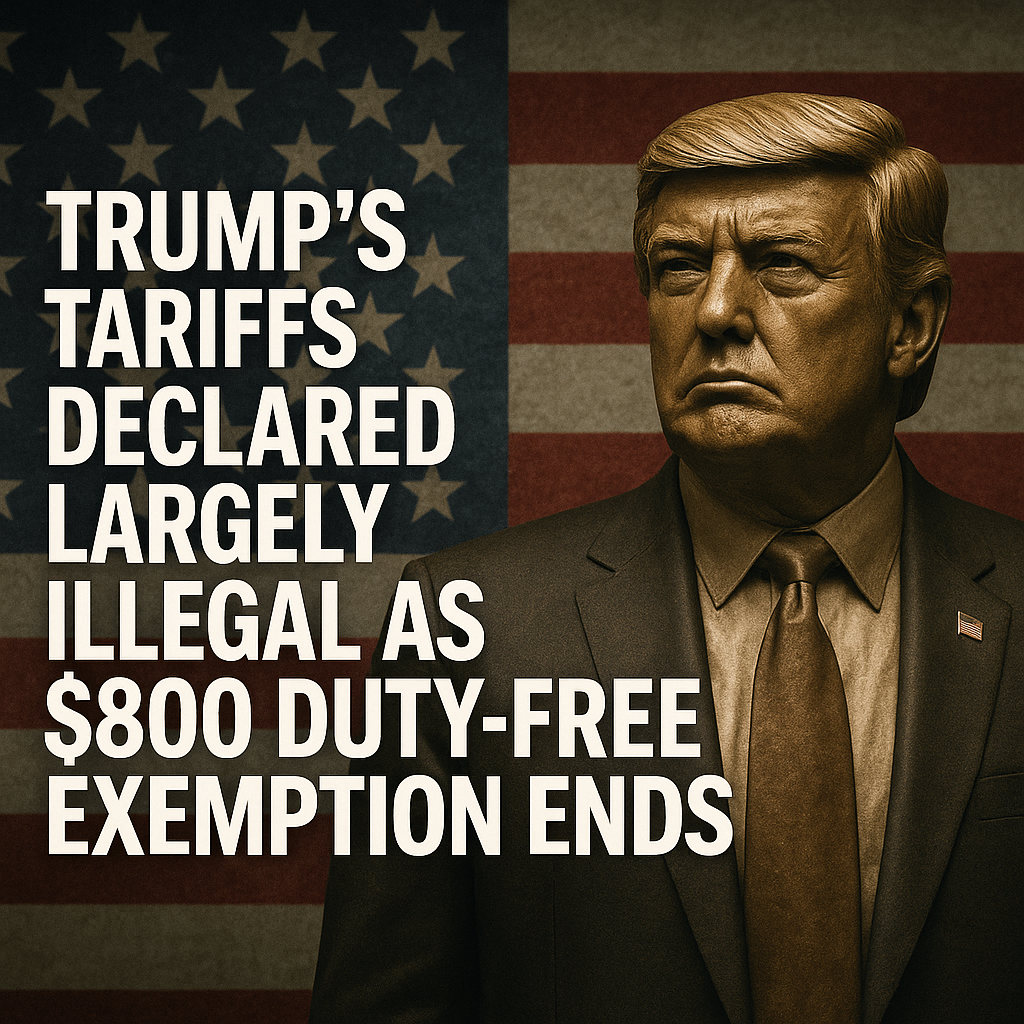Tariff Turmoil: $800 Threshold Removed
The United States Court of Appeals for the Federal Circuit has ruled by a 7–4 majority that most of former President Trump’s global tariff measures were imposed unlawfully. The court found that the International Emergency Economic Powers Act (IEEPA) does not grant a President authority to set tariffs, as that power rests with Congress.
For now, the duties remain in force until 14 October 2025, while the Administration appeals to the Supreme Court. President Trump dismissed the decision as “partisan” and warned it would be “a total disaster for the country” should the tariffs collapse.
The fiscal stakes are significant. Tariff collections tied to Trump’s policies have brought in roughly $150–160 billion in revenue this year, and unwinding them could expose the U.S. Treasury to substantial refund obligations.
Global partners are also pushing back. India’s Commerce Minister Piyush Goyal declared that the country “will not bow down” in response to steep new duties, particularly those linked to its Russian oil purchases.
Separately, the Administration has abolished the long-standing $800 “de minimis” duty-free threshold for imports. As of 29 August 2025, all parcels entering the United States are subject to normal tariffs and duties. A six-month transition arrangement allows some low-value postal packages to face simplified flat charges, but the shift is expected to weigh heavily on cross-border e-commerce and logistics.
With legal appeals pending, financial liabilities mounting, and international partners bristling, the coming months will determine whether Trump’s tariff regime endures or unravels under judicial scrutiny.
Summary
For e-commerce, logistics, and cross-border sellers, the suspension of the $800 exemption and the uncertainty around tariffs will raise costs and destabilise supply chains. At Xyra Group, we view this turbulence not as a deterrent but as opportunity: markets under pressure often yield undervalued assets. Our mandate is to acquire and scale high-margin e-commerce and technology enterprises precisely those best positioned to adapt to a shifting trade landscape. Where others see volatility, we see acceleration.

